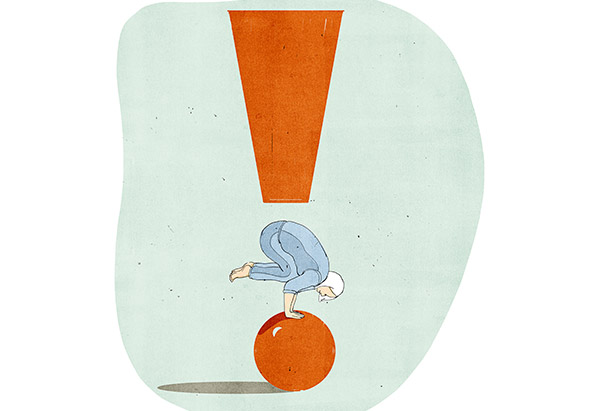3 Things Any Woman Can Do to Live a Long and Healthy Life
After years of studying older folks, a scientist tells us what it takes to age well.

Illustration: Shout
We asked Luigi Ferrucci, MD, PhD, scientific director of the National Institute on Aging, for three critical factors to a long, healthy life.
More on Aging Brilliantly
Find the right stress level
A little pressure is actually good for you. "If you never have to react to anything demanding, the mechanisms in your brain that help you deal with taxing situations will atrophy," Ferrucci says. The key is to find your personal tipping point between pressures that energize and pressures that paralyze you.Don't think getting older is the end of the world
Researchers found that people in their 30s and 40s who looked on the bright side of aging (it brings wisdom, retirement, and more time with family) were less likely to develop cardiovascular disease later in life—and had lower mortality rates—than those who were more pessimistic. "In addition to physiological benefits, thinking about aging in a positive way lets you take full advantage of the opportunities it presents," says Ferrucci.Build your reserves
You've socked away money for your golden years, but what are you doing to prepare your body? "A large part of the physical energy you expend is simply to survive—to keep your bodily functions going," says Ferrucci. "But if you get sick, you need extra energy. If you have exhausted your reserves, your immunity can be compromised and you're more prone to injury." To boost your stores, the answer is simple: exercise. A 2012 study in the Archives of Internal Medicine found that when middle-aged people made a modest improvement in fitness (equal to 150 minutes of moderate-intensity exercise a week for six months) by age 50, their chances of developing chronic conditions such as congestive heart failure, colon cancer, and Alzheimer's decreased by 20 percent.More on Aging Brilliantly



